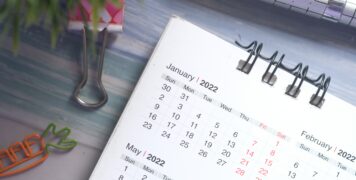Contact
020 4515 6728
info@ccameron.co.uk
Charles Cameron & Associates
Blackfriars Foundry
154-156 Blackfriars Road
London SE1 8EN
Types Of Property and What To Look Out For
May 12, 2023
Information published was correct at the time of writing
--

There are different types of property that you may come across on the market. In this episode, we discuss what you may need to be aware of when looking for a property.

Hello and welcome to this podcast brought to you by Charles Cameron and Associates. Today we will be looking into the different types of property that you may come across on the market and what you may need to be aware of.
The first topic we will look at is property tenure. Property tenure is the legal conditions under which land or buildings are held or occupied, and there are 3 main types of tenure:
- Freehold
- Leasehold
- Share of Freehold / Shared Freehold
So lets start with Freehold
To purchase a property ‘Freehold’ is to buy the ‘absolute title’. This means you own the property in its entirety, including the land the property is built on (though the mortgage lender could repossess it if you do not keep up repayments). As the property is wholly yours, it is the owners responsibility to ensure the property is insured. Freehold properties tend to be predominantly houses, though you should always check this with the estate agent and solicitor.
There are also Leasehold properties and…
when buying there are certain factors you will need to be aware of. With leasehold properties,
- You only own a leasehold property for the period of time remaining on the lease.
- You’ll have a legal agreement with the Freeholder (who owns the lease) and this will tell you how many years you own the property.
- Ownership of the property returns to the Freeholder when the lease comes to an end and you may be obligated to pay an annual service charge and ground rent to the Freeholder on all leasehold properties.
- A lower lease length could limit the number of mortgage providers willing to lend against the property but a Leaseholder has the legal right to extend their lease under the Leasehold Reform Housing and Urban Development Act 1993, if they have owned the property for at least 2 years. The cost of a lease extension will be dependent on several things including but not limited to,
1) The current value of the property
2) What the annual ground rent is
3) The number of years remaining on the current lease
4) The value of any improvements made to the flat by the leaseholder
5) any other factors such as investment returns on the property
6) Potential Stamp Duty charges (if applicable)
7) Legal fees
8) Survey fees
- The property may have either fixed or ‘escalating’ ground rent. A lease with escalating ground rent can affect the number of mortgage providers willing to lend against the property.
- The building as a whole is usually managed by a ‘Managing Agent’ and you may often find leasehold properties are flats, but sometimes newbuild houses can also be leasehold (and again this is something that would need to be confirmed by the estate agent and your solicitor)
Share of Freehold
- Properties with a ‘Share of Freehold’ means you own your property leasehold and also a share of the freehold for the whole building, as well as the land that your property is contained in and this usually applies to flats and apartments
- All owners of the shared freehold will decide on how the property is managed via an AGM. If the property is smaller, for example, a Victorian house split into 2 flats you will be able to make decisions on the maintenance of the property with the other freeholders directly.
Properties Above Commercial Units
If you are looking to purchase a property above commercial premises, these properties may need additional checks by a mortgage lender during the valuation stage such as
- Consideration of Resale-ability
- What type of commercial use it has? The mortgage lender will consider the impact of:
-Noise and smells
-Unsocial hours of operation
-Increased risk of fire from some commercial properties such as restaurants
-Other shops adjacent to the property below the one you are looking to purchase - There could also be potentially higher leasehold costs
Properties in High Rise Blocks – what to consider
Apartments, flats and maisonettes in tower blocks may need additional checks for a number of reasons:
The lender may need to see an EWS1 Form to report on the safety of any external cladding. So, what is it? The EWS1 form is an External Wall System Fire Review certificate and is a mortgage valuation tool to help lenders determine whether to offer a mortgage on the property based on the safety of the block.
Accepted ratings are A1, A2 and B2 but it is important to note that this acceptance is at the lenders discretion.
If there is unacceptable cladding currently installed on the building, lenders may need to see evidence that remedial works are underway at no cost to the leaseholder.
With regards to the EWS1 form itself, it will need to make reference to the full flat address and flat owner – not just generic to the block – in order to be an acceptable document for assessment purposes.
Properties with a mix of private & Council ownership can be harder to find finance for as lenders will consider the resaleability of all properties during the valuation assessment stage.
Also with tower block residences, unconventional building construction materials (concrete, timber framed, etc?) will also need to be assessed by the lender to determine if they are happy to lend.
Some other property factors to consider may also be
- Listed Properties – As listed properties have different implications and restrictions, again the lender will be looking at resaleability and a specialist lender may need to be used for a listed property
- Japanese Knotweed – As Japanese Knotweed can damage the integrity of a property, some lenders may not be happy to lend against a property affected, or they may need to see documents pertaining to remedial works
Lenders will also likely review any
- Structural issues such as Subsidence
- Damp
- Any extensive remedial works to be undertaken
- And any presence of spray foam insulation as it can cause damage to roofs, can cause mould and smell issues, is not eco friendly and can cause health issues.
There are many different types of Property Survey.
Your mortgage lender will carry out a compulsory valuation survey that will look solely at the property’s value and whether the property is suitable security for a mortgage loan. As this is for the lenders benefit, they may not share the report with you and this is often not charged to the purchaser. As a house survey is a detailed inspection of the condition of a property you may prefer to also commission your own report from a qualified surveyor at your own expense.
The main survey types are:-
The RICS Home Survey – Level 1 which is suitable if you’re buying a property built from conventional materials and it is in a seemingly reasonable condition.
It is a Basic Survey and summarises risks to the building and grounds, but it doesn’t offer detailed advice or recommendations, nor a valuation.
This can cost between £300-£900
The RICS Home Survey – Level 2, also known as a Home Buyer Report, is popular for most conventional properties:
It is a Mid-level survey and will report on any roof spaces and cellars
It offers advice and recommendations on any required further investigations including indicative costs for any repairs and on-going maintenance needed and there is also an option for a valuation to be included
This can cost between £400-£1000
The RICS Home Survey – Level 3 is also known as a ‘full structural survey’. If you are buying a very old, dilapidated, listed or unconventional building, or even if you have any concerns over the property this could be a really useful investment, as although they are the most expensive survey they are the most thorough.
It covers all issues highlighted in a Level 2 report and any identifiable risks and causes of potential or hidden defects in areas not inspected.
It also provides the likely scope of any appropriate remedial work needed and explain the likely consequences of non-repair
Recommendations of the priority and likely timescale for necessary repairs is also covered in the report and this may cost from £630 to £1500, or even more depending on the property.
There are many points to consider when taking the step of investing in a property and at Charles Cameron we are here to support you. Please do get in contact with our friendly advisers who will be able to discuss the property you are looking to purchase and offer you whole of market, independent mortgage advice.
Remember, you should always get independent and professional advice from a fully qualified mortgage adviser to understand and explore all available options. Our team of friendly brokers are waiting to support you!
You can now find our Mortgage Matters podcast on a range of podcast platforms, including
Spotify – https://buff.ly/3ylmtO2
Apple Podcast – https://buff.ly/3up3dxY
Amazon Music – https://buff.ly/3yhGW6H
And Google Podcast – https://buff.ly/3bTAlrz
Don’t forget, our professional friendly advisers are on hand to support you and can help you explore all of your options.



